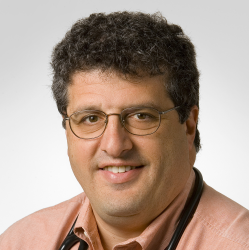 Forums
Forums
How best to use sq Velcade as maintenance
Question for your experts:My husband is 59 and was diagnosed 18 months ago with hyposecretory myeloma ( normal cytogenetics) which relapsed with over 30 hot spots (some quite large) on Pet CT 9 months into full dose rev/. He just underwent tandem ASCT with VGPR. Velcade maintenance is being recommended because of the rapidly dividing macro focal nature of his disease. Is sq as effective as iv and if so what dosing schedule and for how long should it be continued? What is your feeling About using it as a single agent?
Re: How best to use sq Velcade as maintenance
This is one of the most important questions which we are now being asked. Unfortunately there is no absolute answer. Before SQ Velcade it was very difficult to convince pts or doctors that this was a reasonable approach. Now that it appears that sq is at least close to as active as IV it is a more reasonable approach. The only data that we have is in newly diagnosed pts. That data shows that the response rates are similar. We do not have equivalent data in the relapsed setting.
In terms of the dose and whether to use as a single agent, there is even less data. I personally would use full dose with concominant dex, but it should be understood that this is just intuition and not real data. It also does not take into account other health issues (comorbidities) and how well these drugs have been tolerated previously. If I was going to start on such a course, I would not stop until there was some specific reason to do so. (Progression of disease or side effects)
In terms of the dose and whether to use as a single agent, there is even less data. I personally would use full dose with concominant dex, but it should be understood that this is just intuition and not real data. It also does not take into account other health issues (comorbidities) and how well these drugs have been tolerated previously. If I was going to start on such a course, I would not stop until there was some specific reason to do so. (Progression of disease or side effects)
-

Dr. David Siegel - Name: Dr. David Siegel, M.D., Ph.D.
2 posts
• Page 1 of 1
Return to Treatments & Side Effects
